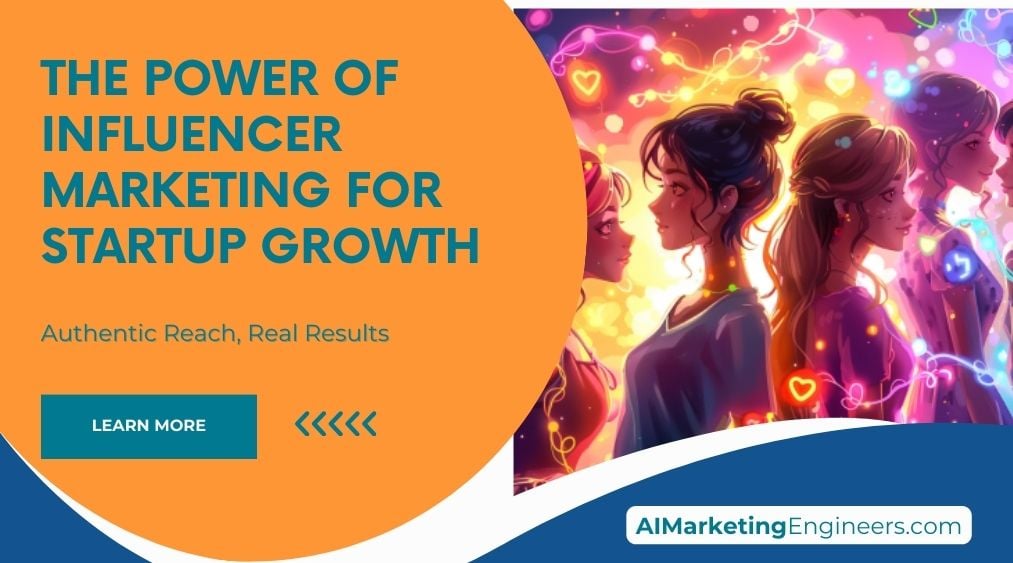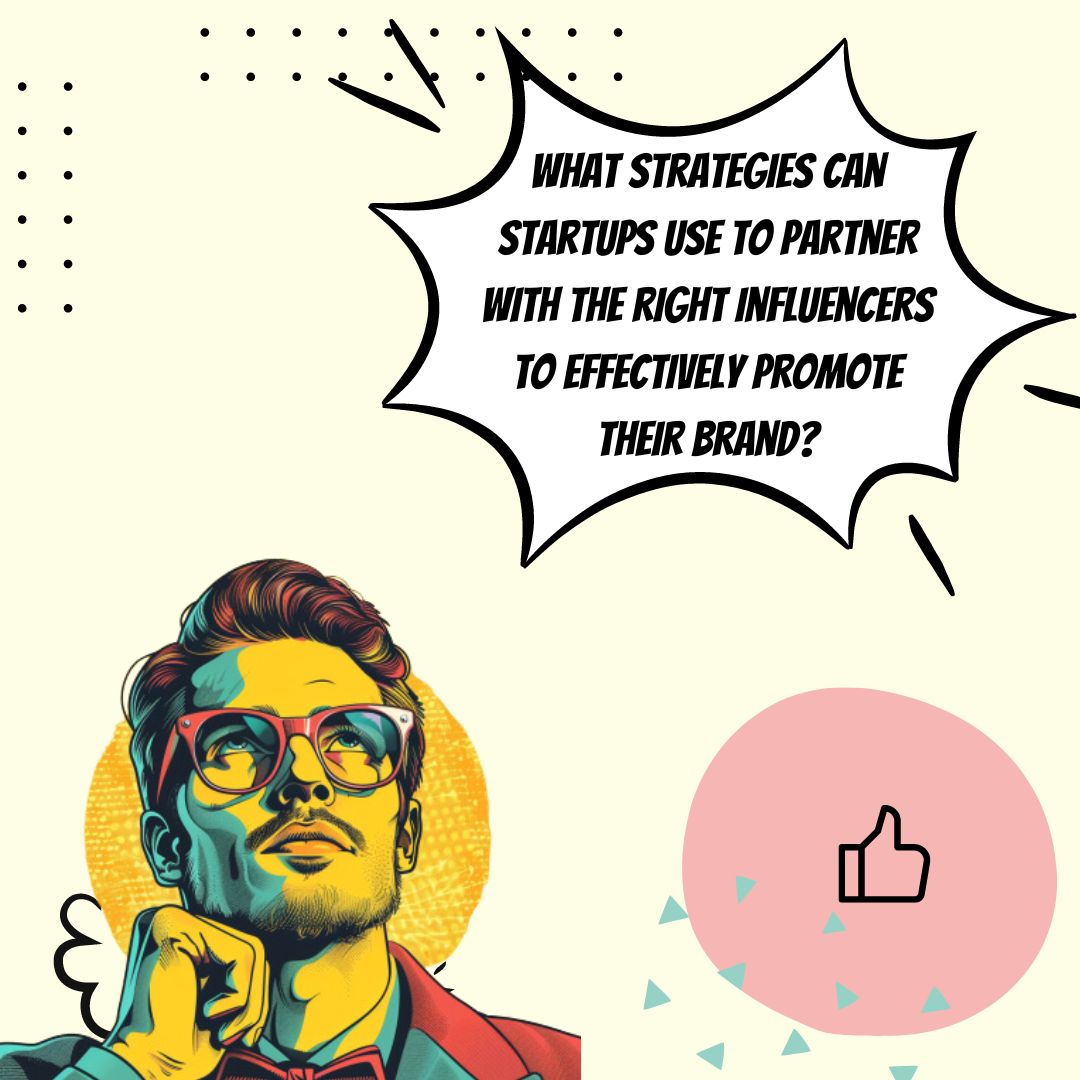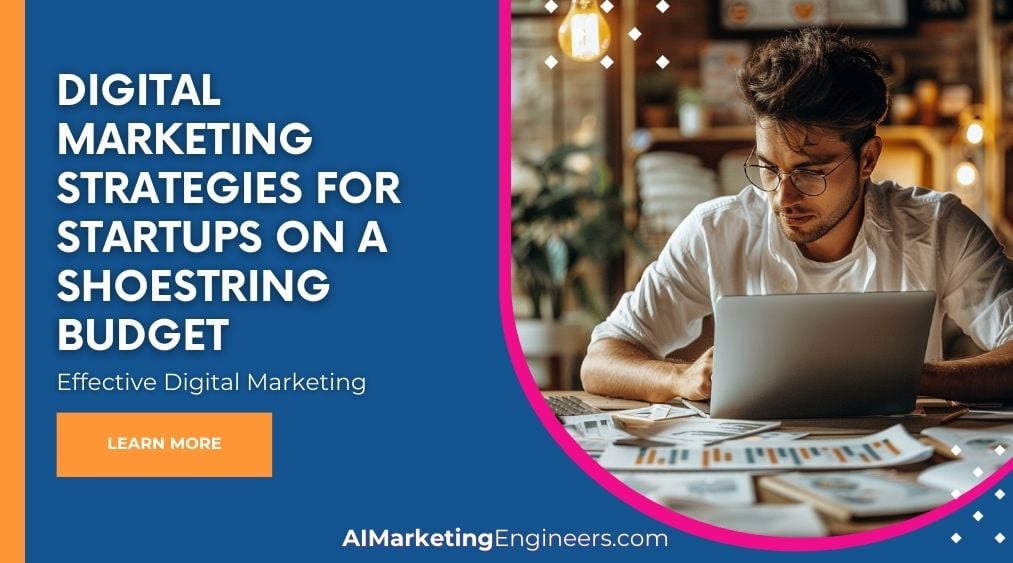Key Takeaways
✅ Authenticity and Trust: Influencer marketing offers startups a chance to use the credibility and trust influencers have built with their audiences, making brand messages more genuine.
✅ Cost-effective and Scalable: Compared to traditional digital marketing, influencer marketing can be more budget-friendly and easily scalable through automation tools.
✅ SEO and Content: Influencer partnerships can boost your startup's SEO by generating links and creating reusable content for different marketing channels.
Introduction
Can influencer marketing be the game-changer for your startup's growth? In an era where consumers are increasingly skeptical of traditional advertising, leveraging trusted voices within niche communities is more important than ever. With the ability to provide authenticity, achieve cost-effective campaigns, and enrich content strategy, influencer marketing stands out as a potent tool for startups. In this article, we'll explore innovative approaches and modern trends to help you maximize your ROI, offering actionable insights and groundbreaking information that could put your startup on the fast track to success.
Top Statistics
| Statistic | Insight |
|---|---|
| Influencer Marketing Industry Valuation: The global influencer marketing industry was valued at $21.1 billion in 2023. | This huge valuation underscores the significant impact and growth potential influencer marketing holds for startups. |
| Adoption by Businesses: Approximately 90% of businesses incorporated influencer marketing into their strategies in 2023. | This high adoption rate reflects the growing trust businesses place in influencer partnerships to boost their marketing efforts. |
| ROI of Influencer Marketing: Influencer marketing campaigns earn $5.78 for every dollar spent. | This impressive return on investment highlights the efficiency and effectiveness of investing in influencer marketing. |
| Gen Z's Response: Gen Z (ages 16-23) is the most likely to respond to influencer marketing efforts. | This demographic's responsiveness offers startups a clear path to engage a younger, highly engaged audience. |
| Projected Spending Increase: 60% of marketers plan to increase their influencer marketing spend in 2024. | This projected increase in spending indicates the continued trust in and potential of influencer marketing strategies. |

The Power of Influencer Marketing for Startup Growth
Influencer marketing offers startups a unique opportunity to level the playing field and gain exposure in their target market. By collaborating with influencers who have a large following on social media, startups can tap into a ready-made audience. But why does this matter? One major reason is that it helps build credibility. When a well-respected influencer within a niche aligns with a startup, the startup appears more trustworthy to potential customers.
Why Influencer Marketing Matters for Startups
This marketing approach offers several significant advantages. For one, influencers create targeted and relevant content that resonates with their audience, allowing startups to reach specific demographics effectively. Authenticity and trust are other key benefits. Influencers have spent time building trust with their followers, which means their endorsements tend to be more impactful in driving conversions. For startups operating on tight budgets, influencer marketing can be more cost-effective than traditional advertising methods.
Benefits of Influencer Marketing for Startups
Influencer marketing allows startups to convey targeted and relevant content through influencers who naturally connect with their audience. This relevance often results in higher engagement rates compared to generic advertising methods. Moreover, influencers create an aura of authenticity that traditional ads often lack. Endorsements from trusted influencers lend credibility and enhance the effectiveness of promotional messages. For budget-conscious startups, influencer marketing can deliver superior ROI compared to costly traditional advertising routes.

Key Elements of a Successful Influencer Marketing Strategy
Identifying the right influencers is crucial. Startups should focus on finding influencers who are relevant to their industry and have an engaged audience. Encouraging creativity among influencers allows them to craft content that truly resonates with their followers. Finally, measuring ROI and performance through technology platforms can help startups gauge the impact of their campaigns and make necessary adjustments for better outcomes.
Overcoming Challenges in Influencer Marketing
Like all strategies, influencer marketing comes with its own set of challenges. Influencer fraud is a prevalent issue, with some influencers inflating their follower numbers. Startups must leverage advanced algorithms and verification tools to identify genuine influencers. Furthermore, AI-driven influencer discovery can aid startups in spotting influencers with high growth potential, ensuring they stay ahead of trends. This combination of technology and vigilance ensures that startups can maximize their influencer marketing efforts.
Influencer marketing is not just a trend but a powerful tool for startups aiming to grow their brand. By leveraging the reach and influence of well-aligned influencers, startups can gain valuable exposure, build credibility, and ultimately drive growth. As long as they navigate challenges wisely and measure their ROI critically, the benefits far outweigh the drawbacks.

AI Marketing Engineers Recommendation
Recommendation 1: Leverage Micro-Influencers for Authentic Engagement: Harnessing the power of influencer marketing through micro-influencers—those with follower counts between 1,000 to 100,000—can lead to higher engagement rates compared to larger influencers. According to a study by Markerly, micro-influencers achieve 60% higher engagement rates than their more popular counterparts. These influencers often have a closer connection with their followers, driving more authentic and trusted interactions. Startups should focus on finding micro-influencers whose follower demographics align closely with their target audience.
Recommendation 2: Integrate Influencer Marketing with Content Strategy: One strategic way to maximize the power of influencer marketing is to weave it seamlessly into your existing content strategy. According to the 2023 Influencer Marketing Benchmark Report, businesses earn an average of $5.20 for every dollar spent on influencer marketing. By including user-generated content, testimonials, and influencer partnerships in blogs, social media, and even newsletters, startups can cultivate a consistent and compelling brand narrative, boosting both reach and credibility.
Recommendation 3: Utilize AI Tools for Influencer Identification: To fully capitalize on the power of influencer marketing, startups should use AI-powered platforms like AspireIQ or CreatorIQ. These tools can analyze vast amounts of social media data to identify the most suitable influencers based on engagement rates, audience demographics, and past collaboration success. Employing AI tools helps in minimizing manual labor and ensuring you partner with the influencers who are most likely to drive growth for your startup.
Relevant Links
- Welcome to AiMarketingEngineers.com
- Discover the essential key factors for setting impactful campaign goals
- Unlock the secrets of market penetration by mastering Campaign Reach and Audience Size strategies
- Discover how personalized advertising and custom campaigns can transform your marketing efforts
- Unlock the secrets to boosting your ad campaigns with our expert guide on Ad Rotation and Variation Testing
Conclusion
In today's dynamic market, influencer marketing proves to be a game-changer for startup growth. By partnering with influencers, startups can achieve unparalleled access to their target audience, leverage authenticity and trust, and enjoy a cost-effective marketing strategy. The power of aligning with well-respected voices within a niche cannot be underestimated, as it helps build credibility and drives conversions.
Selecting the right influencers and giving them creative freedom is vital, as is measuring the return on investment and performance using advanced technology. Startups must also navigate challenges like influencer fraud and stay ahead of trends with AI-driven tools. In light of these insights, influencer marketing emerges as a compelling approach for startups aiming to boost their brand presence and foster sustainable growth. As startups continue to explore this avenue, the potential for exponential growth is truly within reach.

FAQs
Question 1: What is influencer marketing?
Answer: Influencer marketing is a form of collaboration between a brand and a social media influencer. Influencers have a significant and loyal following on platforms like Instagram, YouTube, TikTok, and others, and their opinions and recommendations carry substantial weight within their communities.
Question 2: Why is influencer marketing effective for startups?
Answer: Influencer marketing is effective because it allows startups to tap into new audiences, build credibility, and drive sales. It offers a cost-effective and targeted way to reach potential customers, leveraging the trust and engagement that influencers have built with their followers.
Question 3: What are the key benefits of influencer marketing for startups?
Answer: The key benefits include quick brand awareness, credibility and trust, targeted marketing, content generation, improved SEO, and data-driven results. Influencer marketing helps startups establish a strong foothold in the market by reaching the right people and creating engaging content.
Question 4: How do I find the right influencers for my startup?
Answer: To find the right influencers, identify your target audience and look for influencers who align with your brand values and have a large and engaged following. Ensure their content and style match your brand's vibe and mission.
Question 5: What are the different types of influencers?
Answer: There are various types of influencers, including mega-influencers (large following), micro-influencers (smaller but highly engaged audience), and nano-influencers (very small but highly targeted audience). Each type has its advantages and can be suitable for different marketing strategies.
Question 6: How do I measure the success of an influencer marketing campaign?
Answer: Measure the success of a campaign by tracking metrics such as engagement rates, conversion rates, and return on investment (ROI). Use data and analytics to determine whether the campaign is meeting its goals and make adjustments accordingly.
Question 7: How do I approach and partner with influencers?
Answer: Approach influencers by understanding their audience and content style, and by building relationships with them. Ensure that your brand's values and mission align with theirs, and show appreciation for their support.
Question 8: What kind of content should I create for an influencer marketing campaign?
Answer: Create high-quality, compelling content that resonates with your target audience. This can include various formats such as Instagram posts, YouTube videos, podcasts, and blog posts. Ensure the content is authentic and engaging.
Question 9: How do I maintain a successful influencer marketing strategy?
Answer: Maintain a successful strategy by continuously evaluating and refining your approach. Monitor results, adjust your content and influencer partnerships, and stay up-to-date with the latest trends and regulations in influencer marketing.

Academic References
- Revenue Generation Through Influencer Marketing. (2023). This study highlights the significant growth of the influencer marketing industry, reaching $17.4 billion by 2023, with over 80% of marketers finding it effective.
- Influencer Marketing Within Business-to-Business Organisations. (2023). This research explores the strategic application of influencer marketing in the B2B sector, emphasizing trustworthiness, expertise, and long-term relationships.
- The Influence of Influencer Marketing in Increasing Brand Awareness and Sales for SMEs. (2023). This study investigates the impact of influencer marketing on brand awareness and sales for small and medium-sized enterprises (SMEs), providing insights into its effectiveness in this context.








